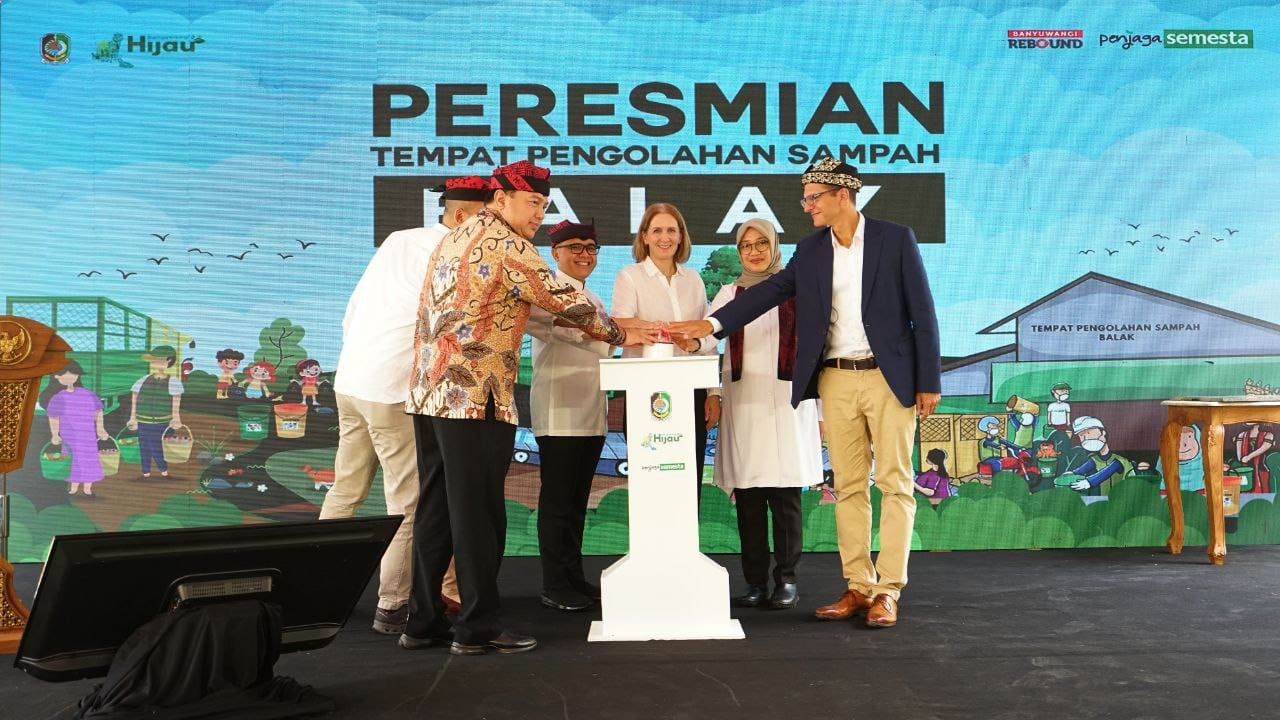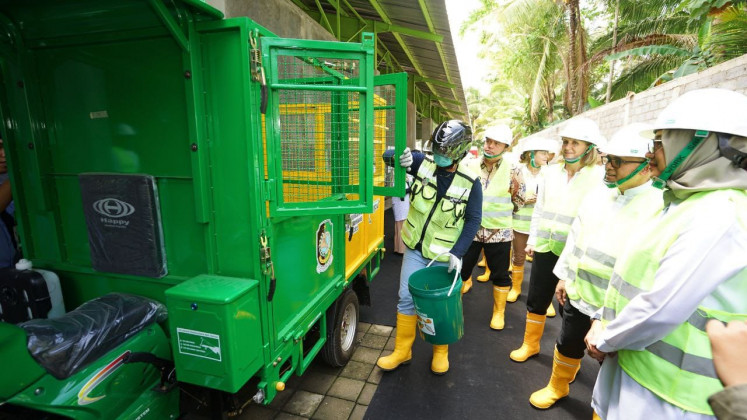Popular Reads
Top Results
Can't find what you're looking for?
View all search resultsPopular Reads
Top Results
Can't find what you're looking for?
View all search resultsCooperation with Norway: Banyuwangi's 84-tonne per day waste facility now active
Change text size
Gift Premium Articles
to Anyone
T
he Reduce Reuse Recycle Integrated Waste Management Facility (3R IWMS) that has been developed in in the village of Balak in Banyuwangi, East Java, began operations on Saturday. Banyuwangi Regent Ipuk Fiestiandani inaugurated the facility, which has a capacity of 84 tonnes per day and was fully supported by the Norwegian government.
This IWMS is one of the circular and sustainable waste management initiatives part of the Banyuwangi Green Program.
"Waste leakage into the environment can be prevented through the cooperation of all stakeholders. Through the Banyuwangi Green Program initiative, we are working together to make a real improvement in the environment and the people of Banyuwangi," said Banyuwangi Regent Ipuk during the Balak IWMS inauguration.
Also present were State Apparatus Empowerment and Bureaucratic Reform Minister Abdullah Azwar Anas and the Norwegian Ambassador to Indonesia Rut Kruger Griverin.
The Banyuwangi Green Program has involved at least 800 change agents from community groups, district and subdistrict governments, villages, academic groups and community organizations.
"I hope that this facility not only serves as a waste management site but also becomes a center for education and inspiration for the community," Ipuk added.
This IWMS is an effort within the Banyuwangi Green Program to control waste, especially plastic, through the sorting of waste directly from households.
The Banyuwangi Green Program is a continuation of the Project Stop (Stop Ocean Plastics) successfully implemented in the Muncar district since 2018 by the NGO PT Systemiq Lestari Indonesia, funded by the Norwegian government and Borealis, an Austrian business institution.
For the construction of the Balak IWMS, Banyuwangi regency allocated more than 1.5 hectares of land with the capacity to process 84 tonnes of waste per day, serving the waste management needs of six surrounding subdistricts.
The service capacity of the IWMS is approximately 250,000 residents or 55,491 households. The facility is equipped with waste processing technologies, including conveyor belts, balers, composting equipment and waste transportation vehicles.
The Balak IWMS has also been designed to efficiently process organic and non-organic waste, mostly originating from households in the service area. In the future, the facility is expected to employ around 200 full-time employees.
Markus Horcher, director of Sustainability and Public Affairs at Borealis, speaking on the new waste facility, said,
"We hope this initiative can inspire and serve as a blueprint for other programs to accelerate the development of a circular economy and prevent waste pollution in the environment," Markus Horcher said.
Meanwhile, the Norwegian Ambassador to Indonesia Rut Kruger Griverin, hoped the IWMS would not only manage waste but also encourage the community to be more environmentally conscious. "We cannot only react but also take action. Cooperation at the local level is the key to addressing waste issues," Rut said.
Nani Hendiarti, coordination of environmental waste management and forestry deputy at the Coordinating Ministry for Maritime Affairs and Investment, who also attended the inauguration, appreciated the Banyuwangi Green Program.
"At present, the Indonesian government is committed to reducing marine waste by 70 percent by 2025. Banyuwangi has been thinking about waste issues ahead of other districts and even major cities in Indonesia," Nani said. (*)











